Stevia (Stevia rebaudiana Bertoni) is the sweetest gift of nature that exists. It is a perennial plant of the Herbaceous family. In nature, there are about 80 known species of plants of this kind, but they only Stevia Rebaudiana and two other (now extinct species) possess the qualities of a natural sweetener.
Stevia is a branched shrub, often called sweet honey herb for its nice and fully natural taste. The leaves of stevia are characterized by a pleasant and refreshing taste that can be 30 times sweeter than sugar. Honey herb contains no calories and no nutritional side effects.
The origin of stevia is from Paraguay and Brazil, where the value of honey herb was known for more than 1.5 thousand years, but for Europeans, stevia became famous and known relatively late. In the wild bush, it may be 60-70 cm tall, with simple leaves, small white flowers and a well-developed root system.
Stevia is grown artificially for more than 50 years, but the natural growing of this sweetener is most active mainly in Paraguay, Brazil, Japan and China, but is cultivated in Southern Ontario, Mexico, California and southern England.
Growing this natural sweetener is very successful in countries with warm climates because it does not tolerate cold weather. Propagation of stevia is by seeds and by rooting cuttings, but the seminal generation is cheaper in the creation of larger trees. Most sweet substances in this natural endowment are accumulated before flowering and therefore this is the ideal time. After skimming, stevia should be dried as quickly as possible.
The raw material for the stevia products that we use today comes from its homeland - Paraguay. This plant has a unique sweet and strong sweet taste and special flavor. Stevia has numerous advantages over all other artificial and natural sweeteners, but the plant also has a wide range of health benefits. Stevia is a powerful adaptogen, antioxidant and bioprotecor with an extremely broad range of preventive and curative abilities. This sweet herb can be used every day by people of all ages.
History of stevia
Although it was known for thousands of years, on the continent stevia appears only in the 19th century. In 1887, South American scholar Antonio Bertoni learned of the sweet herbs offered by Paraguayan Guarani Indians. Since time immemorial, Indians used stevia to give a sweet taste to their traditional bitter drink. They called it "a-ka-he-is" which means "sweet herb" or "honey leaf."
Research on stevia starts in 1931, when two French chemists began to study the extraction of the leaves of the magical plants. As a result of these developments pure white and transparent compound called "steviozid" was obtained, which provides stevia’s taste.
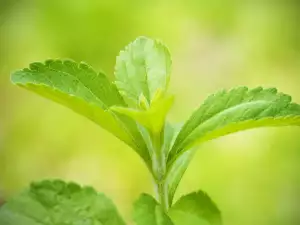
Composition of stevia
Stevia is a sweetener and healer, with a completely natural origin. The leaves of the herb contain glucosides, pectin, vitamins, 17 differentamino acids, trace minerals, antioxidants, essential oils. The composition of stevia is mainly glycosides. They participate in the metabolic processes of the human body without insulin, and normalize blood glucose levels.
With glycosides comes a huge range of important health nutrients - fiber, pectin substances, plant lipids, polysaccharides, vitamins (especially A, C, B1, B2) and micro- elements dominated by potassium, magnesium, zinc, selenium, iron, calcium, sodium, antioxidants, amino acids, minerals and other compounds. The sensation of sweetness, while consuming stevia is very important for the metabolic processes of our body.
Applications of stevia
Stevia is a unique product of nature that is both a natural healthy sweetener but a product that can be successfully used in cooking because it is resistant to heat treatment. Japanese study confirmed that Stevia and its extracts are highly resistant to different ways of cooking and baking, etc.
In fact, the Japanese themselves are the biggest consumers of stevia worldwide. They use honey herbs as a sweetener since 1954. In Japan, exports of stevia are banned and its use in more and different products as a sugar substitute becomes greater. It’s hardly a coincidence that the Japanese have the highest life expectancy in the world.
As a healer, stevia helps to clear the body of toxins and slags, and while it is sweet, it does not contain any calories. It is important to note that the substances in stevia do not ferment in the mouth and increase appetite. Simultaneously, stevia improves digestion and your metabolism.
It’s antioxidant properties have been confirmed as stevia fights against free radicals. Stevia can be used daily as a substitute for sugar as a sweetener, which unlike other sweeteners, is completely harmless and brings only benefits to the body.
Benefits of stevia
The health benefits of stevia are huge and are especially important for people who suffer from diabetes. The treatment with this homeopathic approach helps many of the diseases of our time. Adjusts the sugar content of the blood, as it is lowered in diabetics, as well as lowers levels of the hormone insulin in the blood.
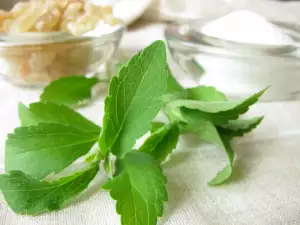
Moreover, stevia lowers elevated blood pressure without affecting its normal level. Honey herb tonic has an effect on the heart, as it strengthens the cardiovascular system. Radionuclides and lowers cholesterol in the body, improves cell regeneration and blood coagulation, and strengthens blood vessels.
Regular consumption of stevia improves your stomach and intestines, enhancing the fermenting activity of the organs of the digestive system. As a result, stevia is highly effective in chronic gastritis. People who are used to sweetening food and drinks with stevia atr proved to suffer from colds, flu and viral infections less frequently.
The sweet herb has bactericidal properties that help in wound healing, treatment of ulcers of different origin, eczema, dermatitis and other skin allergies. Stevia was able to normalize the microflora of the liver after prolonged intake of antibiotics.
Rinsing the mouth with a solution of stevia protects teeth from decay and periodontal gum disease and strengthens tooth enamel. While not actively, it induces salivation and hunger for carbohydrates. Stevia has a calming effect on the nervous system, helps with high stress loads and increased mental work. It successfully relieves rheumatic pains. The plant is very efficient and different bites and insect stings and burns.
This natural medicine fails to regulate weight and metabolism, because in fact, it contains no calories. Stevia is a powerful antioxidant that reduces the effects of harmful free radicals, making us more resilient and has great healing and preventive and healing effect when used by healthy people. Another plus is that regular consumption of stevia may dull your attraction to bad habits such as smoking and alcohol.
Dangers of stevia
For a long time stevia was banned as a food additive in many countries in Europe, because it was not sufficiently investigated. Since 2009, however, the plant is allowed more and more. It is now clear that stevia has no side effects and is a completely clean, useful and effective gift of nature.
There is only fear that at higher doses, stevia consumption can lead to low blood sugar and blood pressure. Therefore, people with similar problems should consume stevia in moderation, without excess.
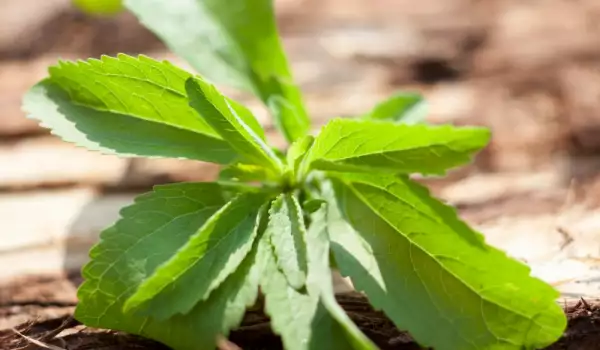
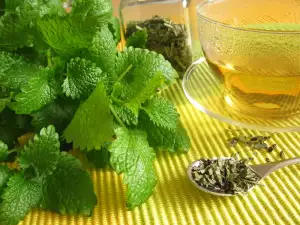
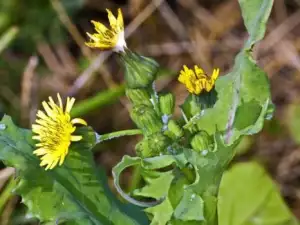
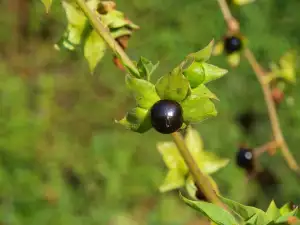

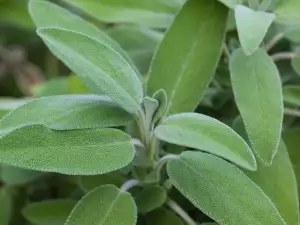

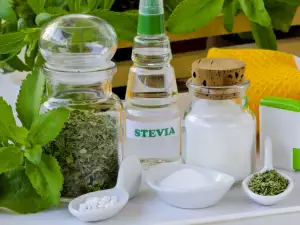
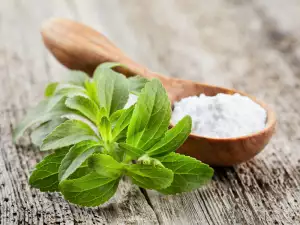
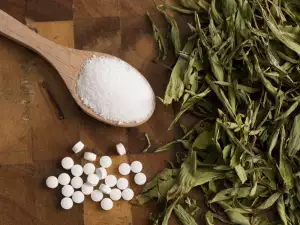
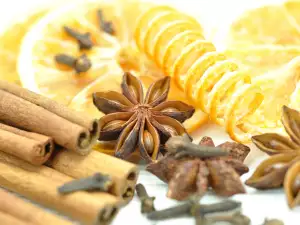
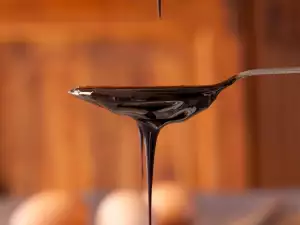

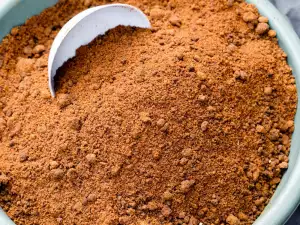
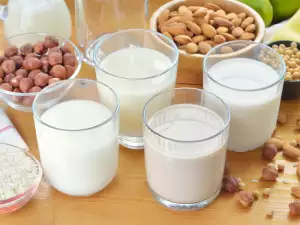




Comments